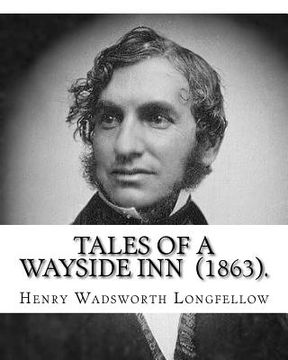Tales of a Wayside Inn (1863). By: Henry Wadsworth Longfellow: Collection of poems (en Inglés)
Reseña del libro "Tales of a Wayside Inn (1863). By: Henry Wadsworth Longfellow: Collection of poems (en Inglés)"
Tales of a Wayside Inn is a collection of poems by American poet Henry Wadsworth Longfellow. The book, published in 1863, depicts a group of people at the Wayside Inn in Sudbury, Massachusetts as each tells a story in the form of a poem. Overview: The poems in the collection are told by a group of adults in the tavern of the Wayside Inn in Sudbury, Massachusetts, 20 miles from the poet's home in Cambridge, and a favorite resort for parties from Harvard College. The narrators are friends of the author who, though they were not named, were so plainly characterized as to be easily recognizable. Among those of wider fame are Ole Bull, the violinist, and Thomas William Parsons, the poet and translator of Dante. Each of the three parts has a prelude and a finale, and there are interludes which link together the tales and introduce the narrators. The prelude for the first part begins: "One Autumn night, in Sudbury town, Across the meadows bare and brown, The windows of the wayside inn Gleamed red with fire-light..." Henry Wadsworth Longfellow (February 27, 1807 - March 24, 1882) was an American poet and educator whose works include "Paul Revere's Ride", The Song of Hiawatha, and Evangeline. He was also the first American to translate Dante Alighieri's Divine Comedy and was one of the five Fireside Poets from New England. Longfellow was born in Portland, Maine, which was then still part of Massachusetts. He studied at Bowdoin College and, after spending time in Europe, he became a professor at Bowdoin and later at Harvard College. His first major poetry collections were Voices of the Night (1839) and Ballads and Other Poems (1841). Longfellow retired from teaching in 1854 to focus on his writing, and he lived the remainder of his life in a former Revolutionary War headquarters of George Washington in Cambridge, Massachusetts. His first wife Mary Potter died in 1835 after a miscarriage. His second wife Frances Appleton died in 1861 after sustaining burns when her dress caught fire. After her death, Longfellow had difficulty writing poetry for a time and focused on translating works from foreign languages. He died in 1882. Longfellow wrote many lyric poems known for their musicality and often presenting stories of mythology and legend. He became the most popular American poet of his day and also had success overseas. He has been criticized, however, for imitating European styles and writing specifically for the masses. Death of Frances: July 9, 1861 was a hot day, and Fanny was putting locks of her children's hair into an envelope and attempting to seal it with hot sealing wax while Longfellow took a nap.[70] Her dress suddenly caught fire, though it is unclear exactly how;burning wax or a lighted candle may have fallen onto it. Longfellow was awakened from his nap and rushed to help her, throwing a rug over her, though it was too small. He stifled the flames with his body as best he could, but she was already badly burned.Over half a century later, Longfellow's youngest daughter Annie explained the story differently, claiming that there had been no candle or wax but that the fire had started from a self-lighting match that had fallen on the floor. Both accounts state that Fanny was taken to her room to recover and a doctor was called. She was in and out of consciousness throughout the night and was administered ether. She died shortly after 10:00 the next morning, July 10, after requesting a cup of coffee. Longfellow, in trying to save her, had burned himself badly enough so that he was unable to attend her funeral.His facial injuries led him to stop shaving, and he wore a beard from then on that became his trademark..............

